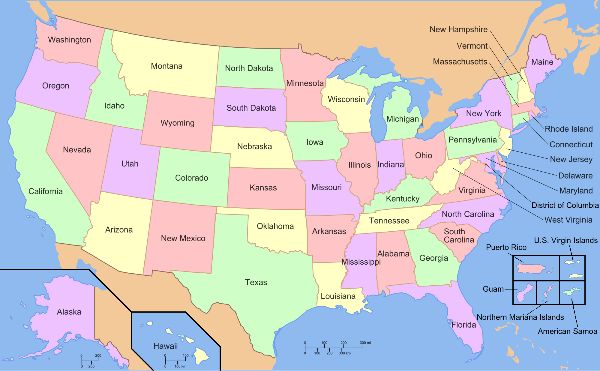Thinking about becoming a locksmith? Want to know how to become a locksmith in Kansas? This step-by-step guide is designed for anyone living in Kansas—including Wichita, Overland Park, Kansas City, Olathe, Topeka, Lawrence, Shawnee, Manhattan, Lenexa, and Salina.

In this guide, you will learn about the following:
- How to get locksmith training in Kansas?
- Finding the right locksmith schools in Kansas
- How to become a locksmith in Kansas?
- How to start your own locksmith business in Kansas?
Should You Become a Locksmith in Kansas?
Locksmiths help people by making keys, fixing locks, and keeping homes, businesses, and cars secure. In Kansas, most locksmiths work for themselves or run small family businesses. You don’t need a lot of money to start—just the right skills and some basic tools. Many locksmiths work from home or use a mobile van with the necessary equipment like key cutting machines and car key programmers.
The good news is, Kansas doesn’t require a special license to become a locksmith. Once you learn how to make keys and install locks, you can start working or even open your own business.
To find customers, you’ll need to advertise both online and in your local area. The biggest challenge is getting noticed, especially with lots of competition. But with good service and smart marketing, you can build a successful locksmith business in Kansas.
Do you need a locksmith license in Kansas?
No. Kansas does not have any licensing for locksmiths in the state (as in April 2025). You should consult with the appropriate Kansas departments or City Hall or local trade association detailed guidance on starting a locksmith business in Kansas.
Eligibility for Becoming Locksmith in Kansas
Generally speaking, there is no specific requirement for becoming a locksmith. You just need to be eligible to start a business in the state of Kansas.
- Age: 18 years or older (a major) and sound mind is a universal requirement.
- Education Degree: You don’t need any education degree or training certification to become a locksmith in Kansas.
- Criminal History: Good moral and ethical background is a general requirement. A criminal record will not automatically deny you a chance to work as a locksmith.
- Key Skills: Mechanical and mathematical ability, knowledge of lock components, and ability to use locksmith tools to open & repair locks and make new keys.
- License and Certification: State-issued business license or a business license issued by your City Hall is generally required. Professional certifications recommended.
- Average Salary of Locksmiths: $50,000 – 60,0000 / year (approximate average in the US, as in April 2025, Source: Salary.com).
How to Become a Locksmith in Kansas?
- Get locksmith training (join a trade school)
- Work as an apprentice locksmith to gain work experience
- Get locksmith certifications for showing your qualifications (optional)
- Find work with local locksmith companies in Kansas or start your own business
- Join a reputed trade association for regular industry knowledge and support
- Upgrade you skills and continue learning about the latest locks & security technology in home, automobile & business space
Step 1: Get Locksmith Training in Kansas
Anyone looking to work as a locksmith in Kansas should acquire knowledge of the trade.
Find a local locksmith school in your city in Kansas. You can start your search for a local trade school within your Kansas city by checking local phone directories, yellow pages, and online directories for nearby locksmith training programs. Alternatively, you can reach out to a local locksmith for guidance in this regard.
It’s important to note that locksmith schools may not be available in every city. Therefore, it’s advisable to broaden your search and explore the possibility of finding a reputable locksmith school within Kansas. If this proves challenging, consider extending your search to include neighboring states.
Online courses: Furthermore, there are several well-regarded locksmith schools in the United States that offer online courses. Enrolling in an online locksmith program can provide you with formal training in the locksmithing trade.
Locksmith certificate and diploma programs are also accessible through community colleges, vocational schools, and locksmith trade associations. Another viable route to becoming a locksmith is by serving as an apprentice under the mentorship of an experienced locksmith. However, even if you opt for an apprenticeship, it’s wise to pursue locksmith certification from recognized certifying bodies.
Here are some of the popular locksmith courses.
- Basic Locksmithing Course
- Certified Licensed Locksmith (CLL)
- Certified Registered Locksmith (CRL)
- Certified Professional Locksmith (CPL)
- Certified Master Locksmith (CML)

Step 2: Get Employed as a Locksmith (or Apprentice)
Once you have successfully completed a locksmith training course, you should seek employment with reputed local locksmith companies and also with the maintenance departments of local businesses and organizations in Kansas.
Having certification to support your locksmith skills should make it easy to find an entry-level locksmith job in Kansas. If you can’t find one, consider becoming an apprentice under an experienced locksmith to gain hands-on experience.
You can reach out to local locksmith businesses in Kansas for apprenticeship opportunities. These usually don’t pay much or at all, but they teach you the technical, legal, and business sides of locksmithing.
While there’s no locksmith license needed in Kansas right now, it’s a good idea to double-check the current rules and regulations.
Step 3: Start Your Own Locksmith Business
A lot of locksmiths have good jobs either with local locksmith companies or in the maintenance departments of other companies. But some prefer to be their own bosses.
If you’re someone who likes to run your own business, it’s quite simple to start your own locksmith business in Kansas. You can have your own physical shop where you fix locks, or you can be a mobile locksmith, driving around in a van with all your tools.
Many local locksmith businesses in Kansas do both – they have a shop and a van for when they need to go to a customer. If you don’t have much money to start, you can begin as a mobile locksmith by using your own car as your workspace.
Choose your business structure: When starting a business, the first important decision is picking how you want to set it up. You can go for a sole proprietorship, a partnership, an LLC (Limited Liability Company), or a corporation.
A sole proprietorship is the easiest because it means you’re running the business as an individual without a lot of paperwork. However, it also means your personal assets could be at risk if something goes wrong with the business.
An LLC is a good choice because it keeps your business and personal stuff separate. So, if there are problems with the business, your personal things are safe. If you want even more protection, especially for bigger businesses, you can choose a corporation.
Obtain business license: Whether you work from a store or a locksmith van, it is a general requirement that your register your business with the City Hall (and the state where required). You will also need to obtain work permits such as contractor licenses. Where your business name is different from your legal name (Doing Business As or Fictitious Name), you will need to register your business fictitious name too.
Insurance: General liability insurance is often a requirement for obtaining business licenses. Even if your state / county does not mandate any insurance, you should obtain adequate insurance cover to protect your business. A work gone wrong can attract hefty payments for damages. Insurance will ensure that you don’t go bust.
Step 4: Join Locksmith Trade Association
Once you get your locksmith license, or start working as a locksmith, you should join any prominent trade association in your state. It will help you stay informed with developments in the sector. You can also find help with several other issues through your trade association.
Being a member of a trade association will help with expanding business, building customer base, continued education, legislative representation, industry bonding, insurance options, and more.
Step 5: Continue Learning
Locksmiths must keep learning about new locks, keys, and security systems due to ongoing changes in the industry. Staying updated is crucial for success.
To do this, locksmiths should attend industry seminars, events, and take advantage of training opportunities provided by lock manufacturers, trade groups, and locksmithing schools.
That’s all on how to become a locksmith in Kansas. Don’t forget to verify the applicable laws (for new legislations and amendments) and compliance requirements for the locksmith industry in Kansas.

